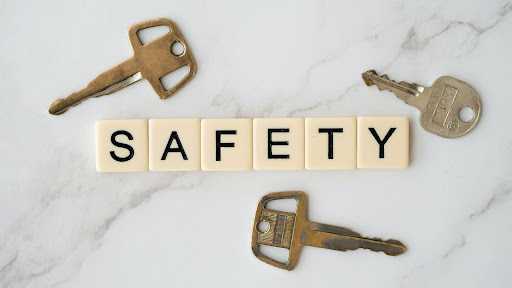13 Things To Consider Before Buying Your First Car
There are a lot of things to think about when you’re out looking for a car. Of course, the first thing that comes into mind is probably the price, but there are many more important things to consider before buying your first car.

Here Are Some Of The Many Things To Look Out For
- The Legalities
Since you will be driving this car, it is important to make sure that the car has a valid Dmvtest.autos, license plate, and registration certificate. If the car’s ownership cannot be tracked (because there are no records), then you might not be able to get future help regarding your vehicle if needed.
- Condition Of The Exterior
Examine the paint on the outside of the vehicle to see weathering or chipping of paint that could indicate a history of collisions or rusting of vital components due to exposure to moisture/rain etc. If necessary, request digital photos from the current owner for better examination.
- Condition Of Interior
Inspect any stains involved to understand if they were caused by accidents involving water/fluids or the owner’s negligence.
- Check For Recalls And Service Bulletins
Before purchasing your vehicle, make sure that there are no open recalls (especially if it has to do with something like a faulty airbag). Then, check with the manufacturer to see if any of the parts associated with the recall have been repaired – check under the hood, inside the rearview mirror, etc.
You can also search the vehicle’s VIN number and check if your car is in need of any service bulletins (recalls might be in your state but not your specific car, so you would want to look up all possible safety concerns).
- Check Availability Of Parts
If you don’t know how to work on a car, you might either end up paying for expensive repairs or end up in a worse situation. Make sure that the necessary parts are available and not extremely expensive so you can easily get them when needed.
- Test Drive
Before buying a car, take it for a test drive, especially if the seller doesn’t allow one before signing purchase documents. It will also help in determining if there is any rattling noise that could indicate loose suspension components etc.
- Check The Status Of Brake Fluid
If there is absolutely no mention of when the brake pads were changed last, then try to determine by listening whether the brakes squeak loudly when pressed – this could mean worn-out brake pads needing immediate replacement along with rusty rotors. In contrast, if it does not squeak, then there might be corrosion on brake discs requiring professional care.
- Check The Status Of Tires
If the owner has no idea how long he/she has owned this car, then check to see that the tires are not severely worn out since they might have been replaced immediately after purchasing the vehicle or simply neglected until now (which would indicate poor maintenance).
Also, look for any bulges or bubbles in sidewalls that could mean internal damage due to overloading, etc. Finally, if possible, probe the treads with your car keys – if you can go about an inch deep without penetrating them, then they are good, but anything less than that means replacement is required immediately.
- Look Under The Hood
Make sure that everything under the hood is in place. Note whether any hoses or wiring are cutting across each other, which could mean problems with car mechanics (especially for beginners).
- Transmission Fluid Dipstick
This can be checked even if you do not know how to work on a car, so make sure to check this since it doesn’t require professional care. You just put your index finger into the tube and pull it out – if it’s red, then transmission fluid needs replacement. In contrast, if the level is below the minimum level, then this indicates neglect by the owner, who might’ve wanted to sell it without mentioning this important issue.
- Check Headlights And Signals
Before signing purchase documents, test headlights, parking lights/tail lights, etc., to make sure that they all work and blink in proper intervals (indicating good wiring and bulb condition).
- General Check-Up
After everything above, just give the car a thorough checkup yourself without letting the seller know what you’re looking for specifically. If he/she finds out about specific problems, then they would try to conceal them, so don’t let them know, or else they might mislead you later on or simply refuse to sell it until you pay more.
- Take Your Time
You’re not under any kind of pressure to buy this car except that people might be leery about getting into an accident with you if you drive around in a hazardous condition. So take your time and think carefully before signing anything or spending money (even though the seller is trying his/her best to sell it). This way, you can make better decisions based on detailed information without letting emotions get the better of you.
PS. Ensure that your vehicle has the correct road safety requirements by law. To buy or sell a vehicle you will need a roadworthy certificate which you have in place to keep you and other road users safe. It’s a simple inspection to ensure that your vehicle is safe to be driven on the roads. Don’t stress, most people pass this.
Read more on
Have you checked us out on Instagram.
Check us out here.Related Stories
Advertisement Advertisement
Advertisement Advertisement
Advertisement

